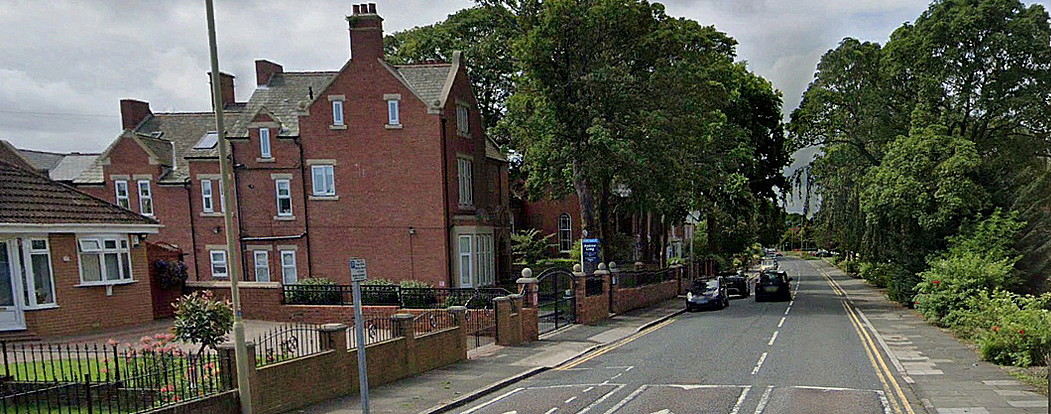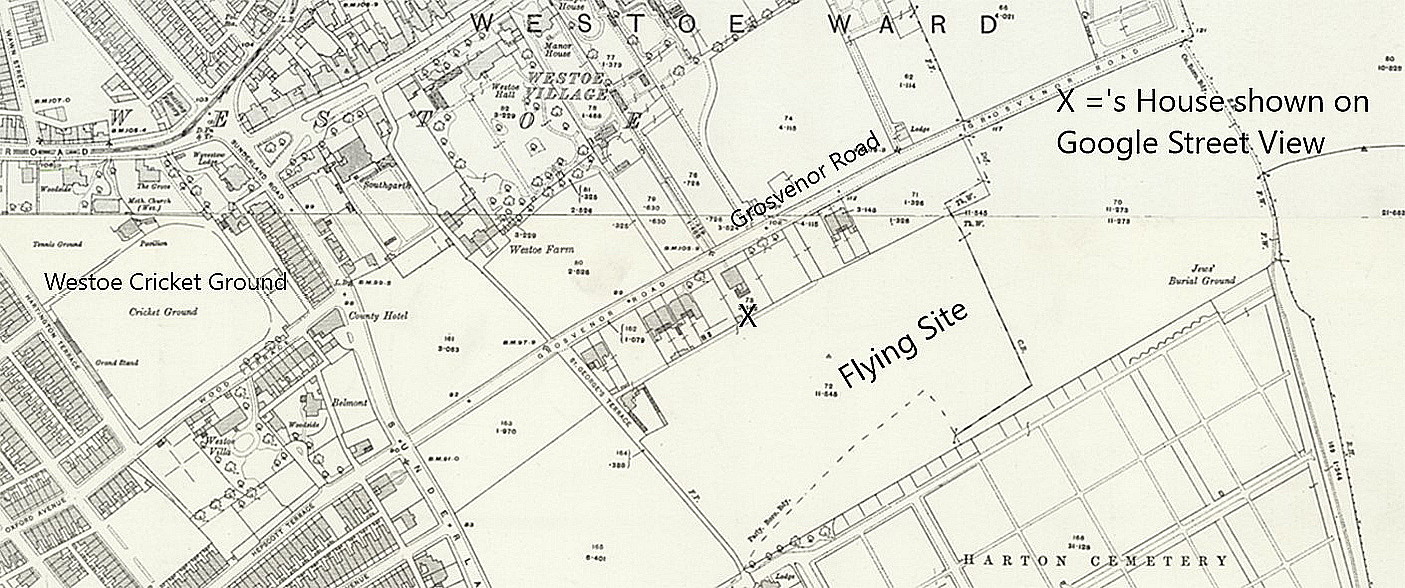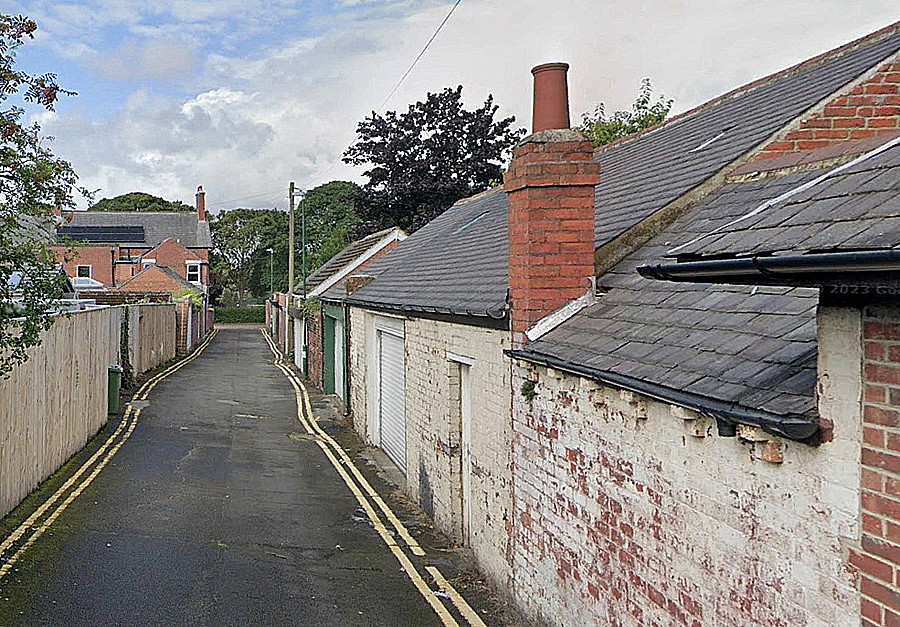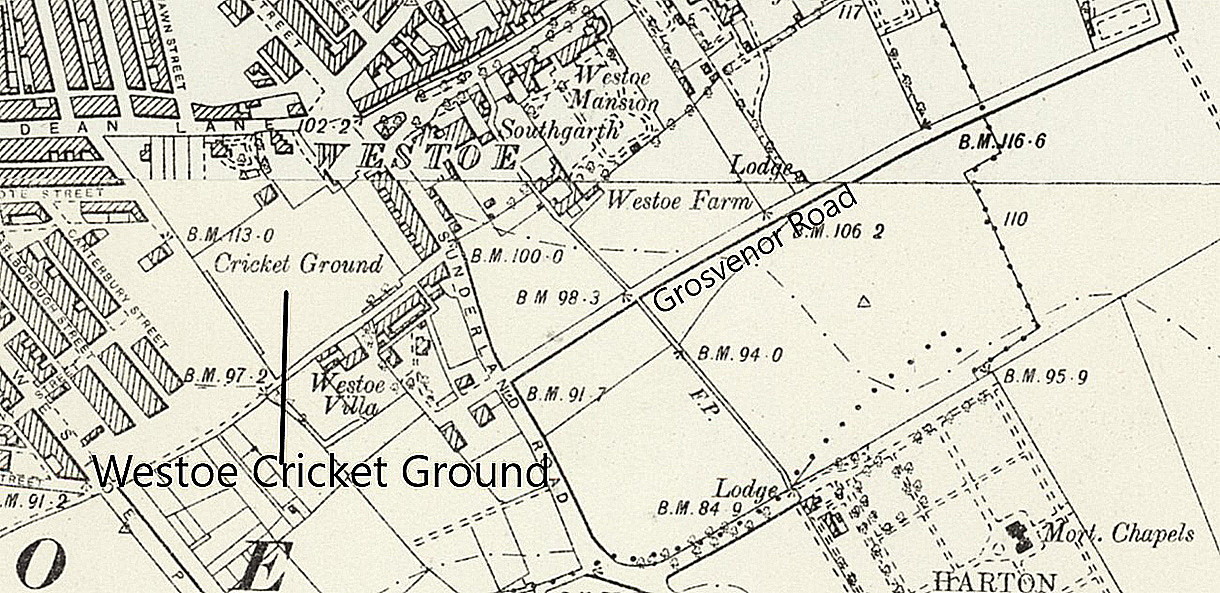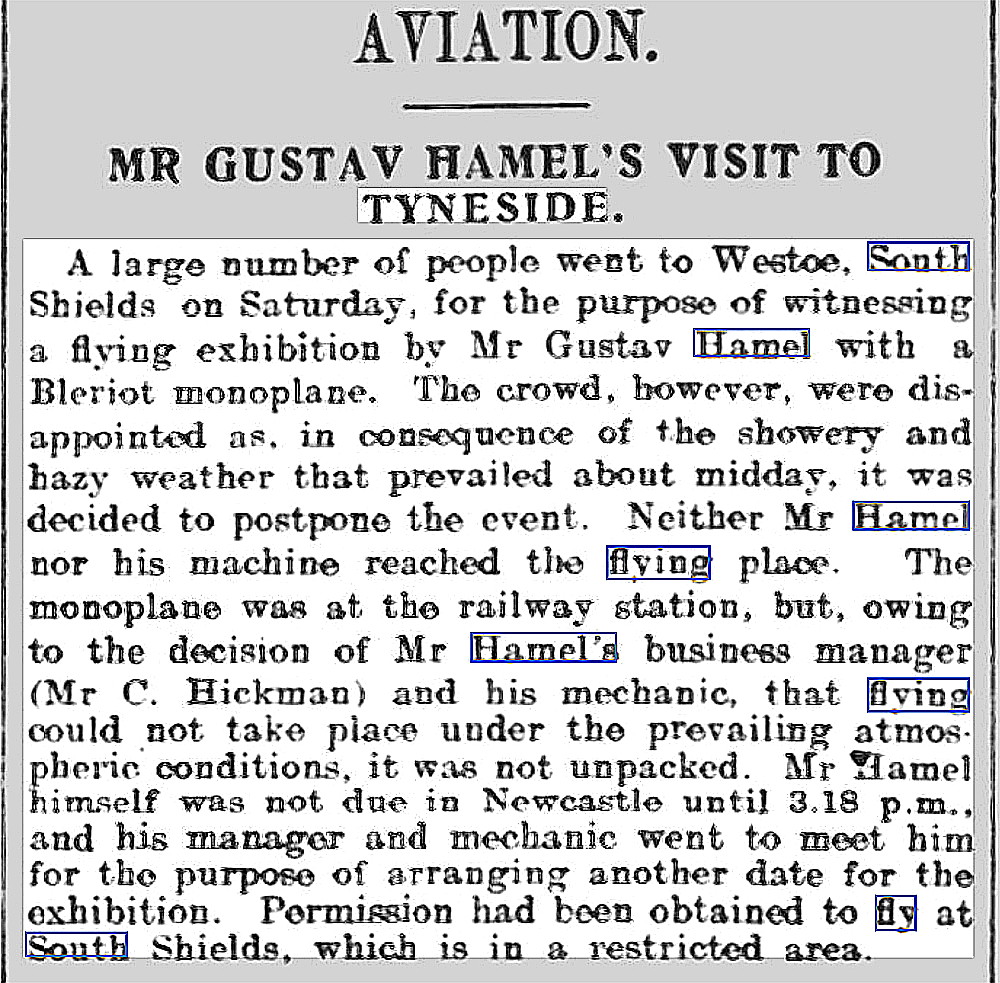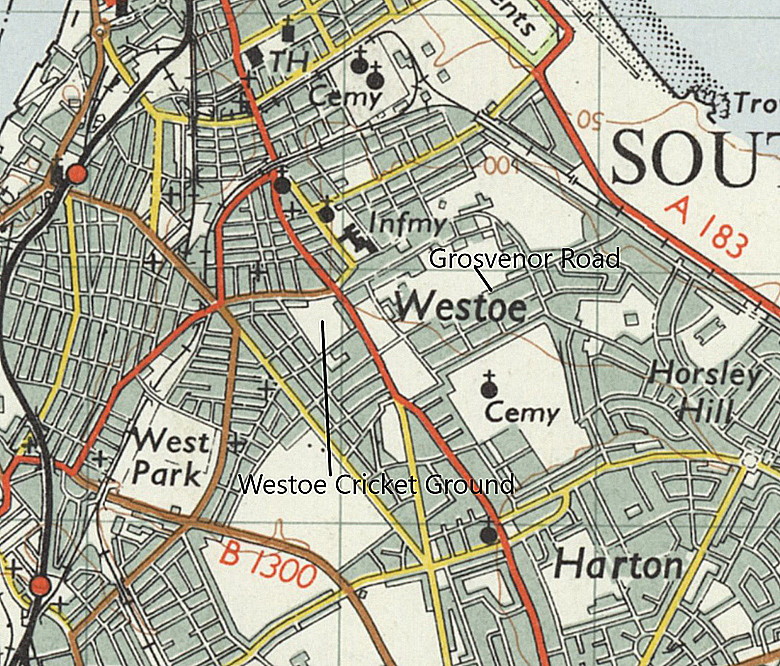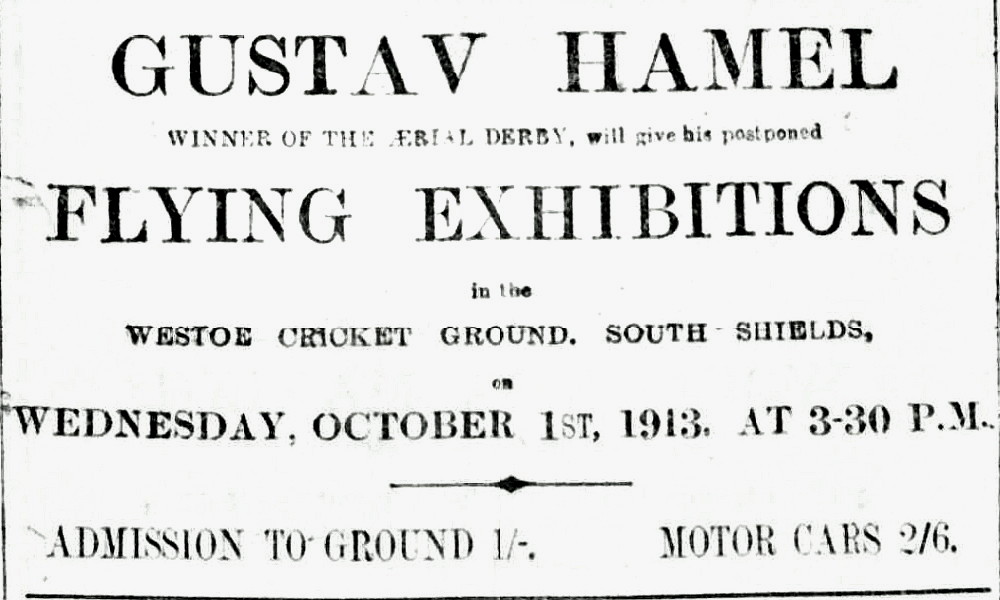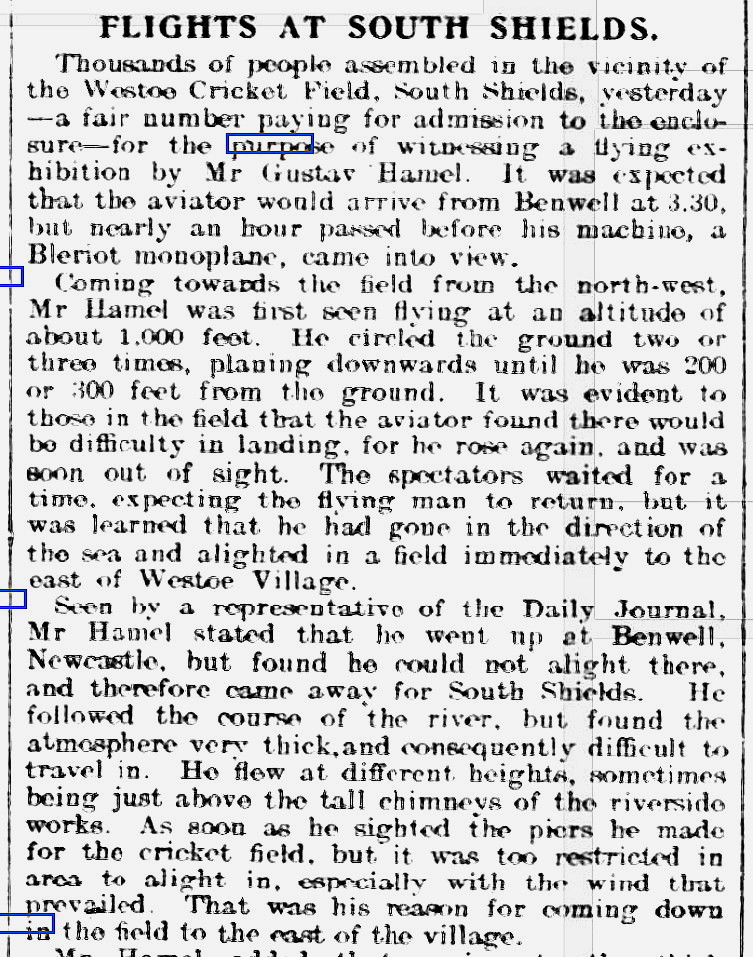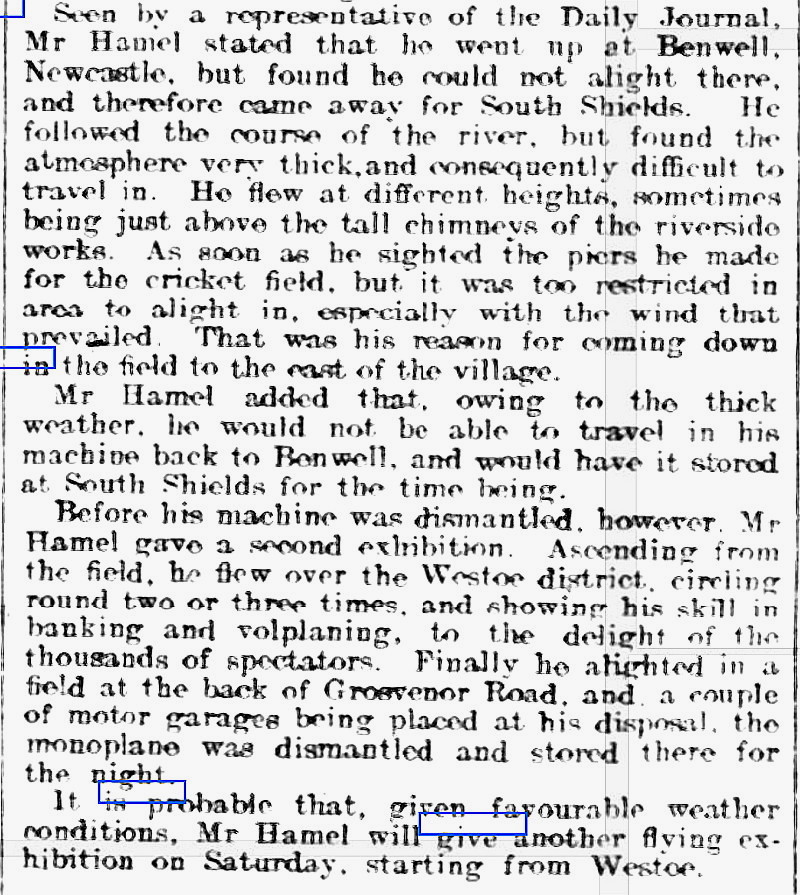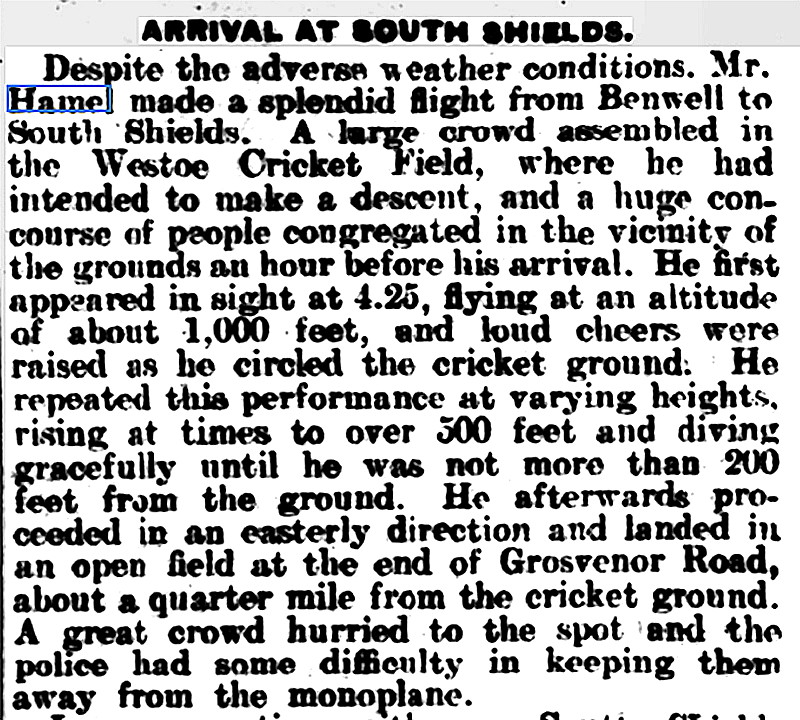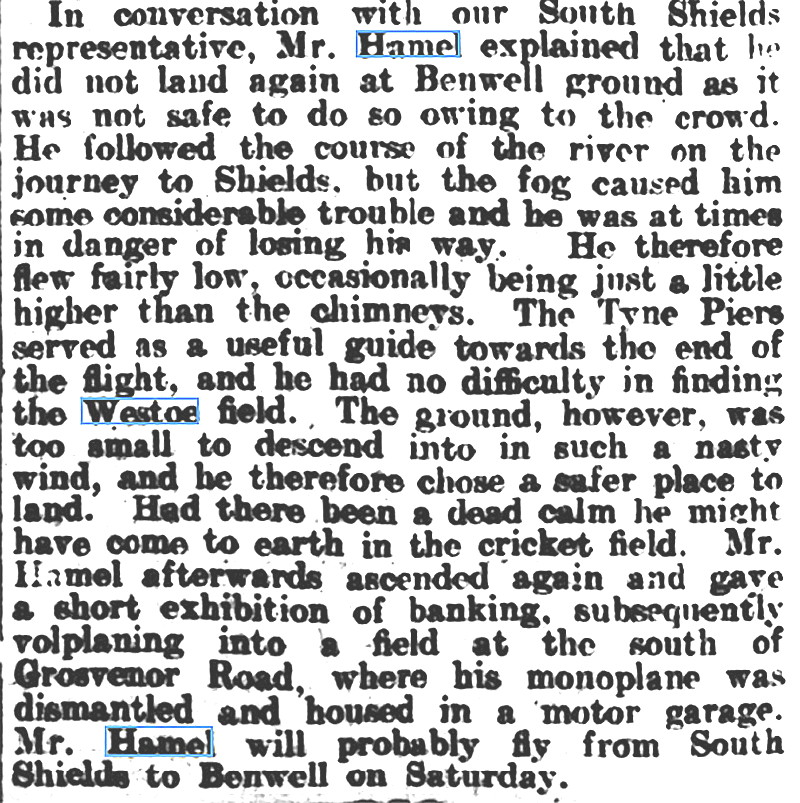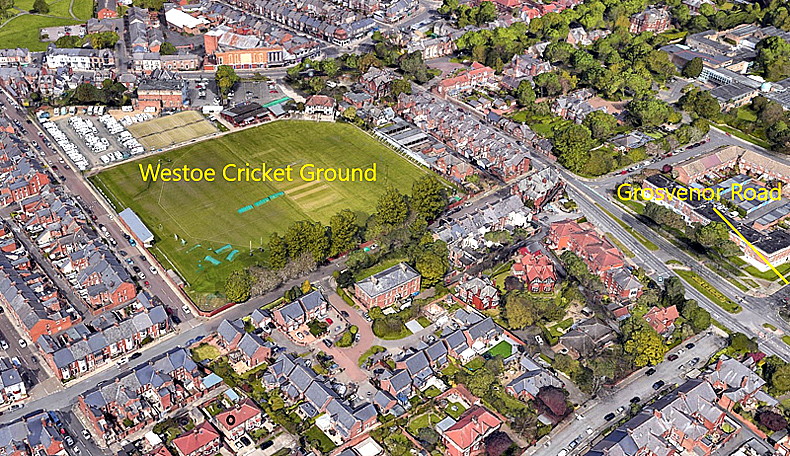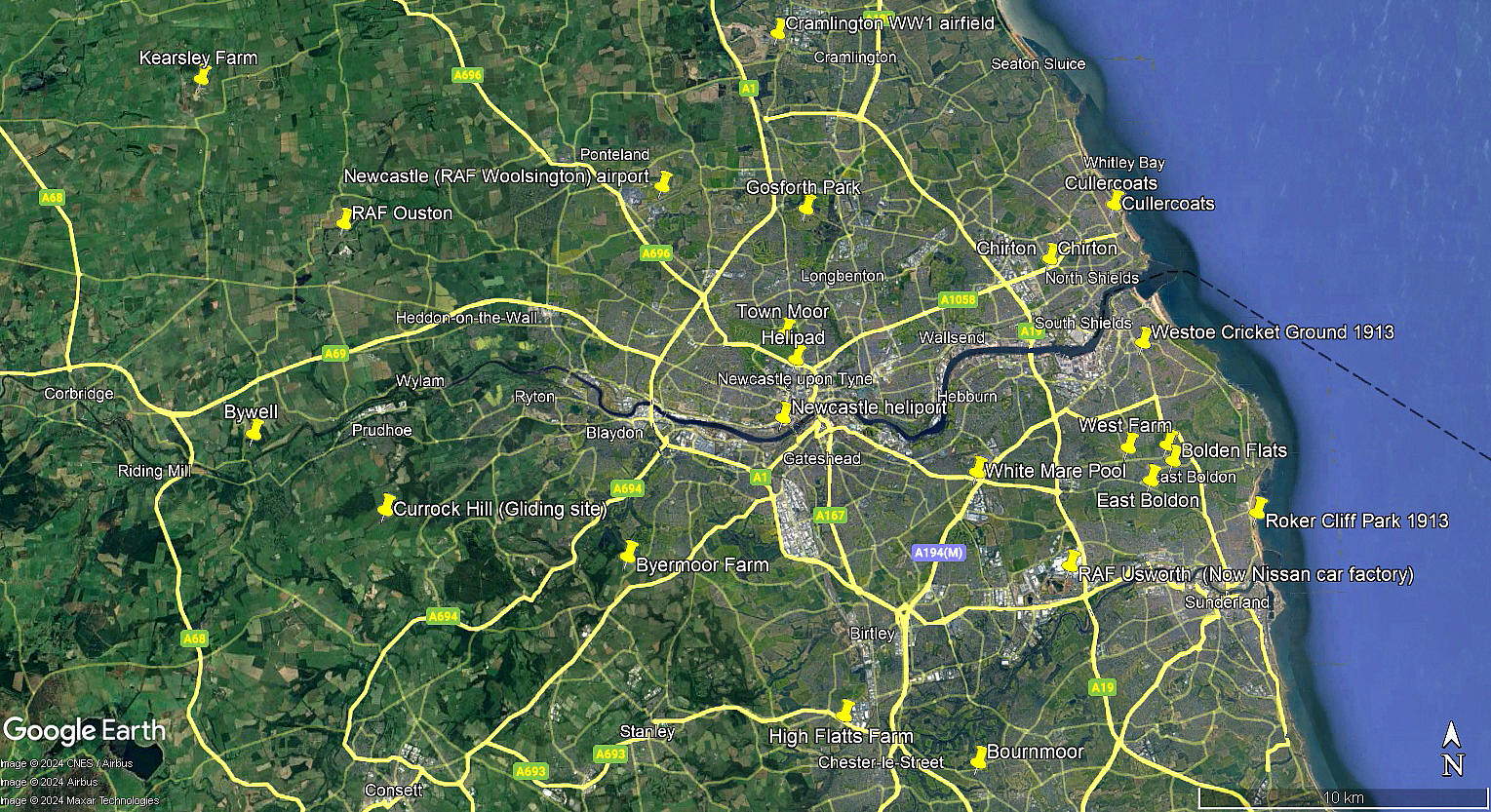Westoe Cricket Ground
WESTOE CRICKET GROUND: Proposed Temporary Landing Ground
Note: Instead of landing he displayed over the Cricket Ground, then landed in a larger field just to the east
Operated by: Mr Gustav Hamel
Location: Just SSE of South Shields town centre, roughly 7nm ENE of Newcastle-upon-Tyne city centre
Period of operation: 1st October 1913 Departing, perhaps on the 4th October?
A MICHAEL T HOLDER GALLERY
We have Mike Holder, a great friend of this 'Guide', to thank for the following maps and articles etc.
A CHANGE OF PLAN
As pointed out in the articles below, Hamel decided that with the prevailing adverse weather conditions, he displayed over the Cricket Ground, but then decided to actually land in a larger nearby field.
The Article One was published in the Newcastle Journal on the 15th September 1913.
OUR 'GREAT' BRITISH WEATHER
This advert was published in the Shields Daily Gazette on the 29th September 1913.
The articles which appear in this listing clearly demonstrate the determination of Gustav Hamel to overcome the vagaries of our weather, plus sea fog near our coastline. I have found it very interesting to note whilst researching this 'Guide' that our weather has not really changed in the slightest over the last hundred plus years. This is not to say that the average temperature has not risen.
Hardly surprising of course as our green and sceptic, (increasingly septic too of course), Isle, being anchored in the volatile eastern reaches of the Atlantic ocean gets the lot over time. Indeed, sometimes seeing three 'seasons' in one day in very localised areas, from snow to basking in sunshine in a couple of hours or so. And, this applies from top to bottom, or north to south if you prefer.
Indeed, when I was learning to fly, mostly from WYCOMBE AIR PARK, (which has its own bespoke weather), there was an often quoted saying - "Time to spare? Go by air,"
PROOF IF PROOF IS NEEDED?
Article Two, in three parts, was published in the Newcastle Journal on the 2nd October 1913.
AN IDENTICALLY SIMILAR ACCOUNT
This account was published in the Newcastle Daily Chronicle, also on the 2nd October 1913. Is it just my imagination, having entered into 'Old Fogeydom', or were newspaper reporters much more focused in those days upon reporting accurately as far as possible?
AND FINALLY
The aerial view was obtained from Google Earth ©. The area view is from my Google Earth © derived database. In those days the most favoured venues for giving 'exhibitions of flying' were always those with grandstands where the wealthier spectators could, if they chose, to become seated to view the proceedings.
Which is why, I would guess, in this case a cricket ground as opposed to a football ground was selected? Have noted that horse racecourses were very much favoured. Much larger of course, therefore safer for the aviators to perform from.
We'd love to hear from you, so please scroll down to leave a comment!
Leave a comment ...
Copyright (c) UK Airfield Guide














